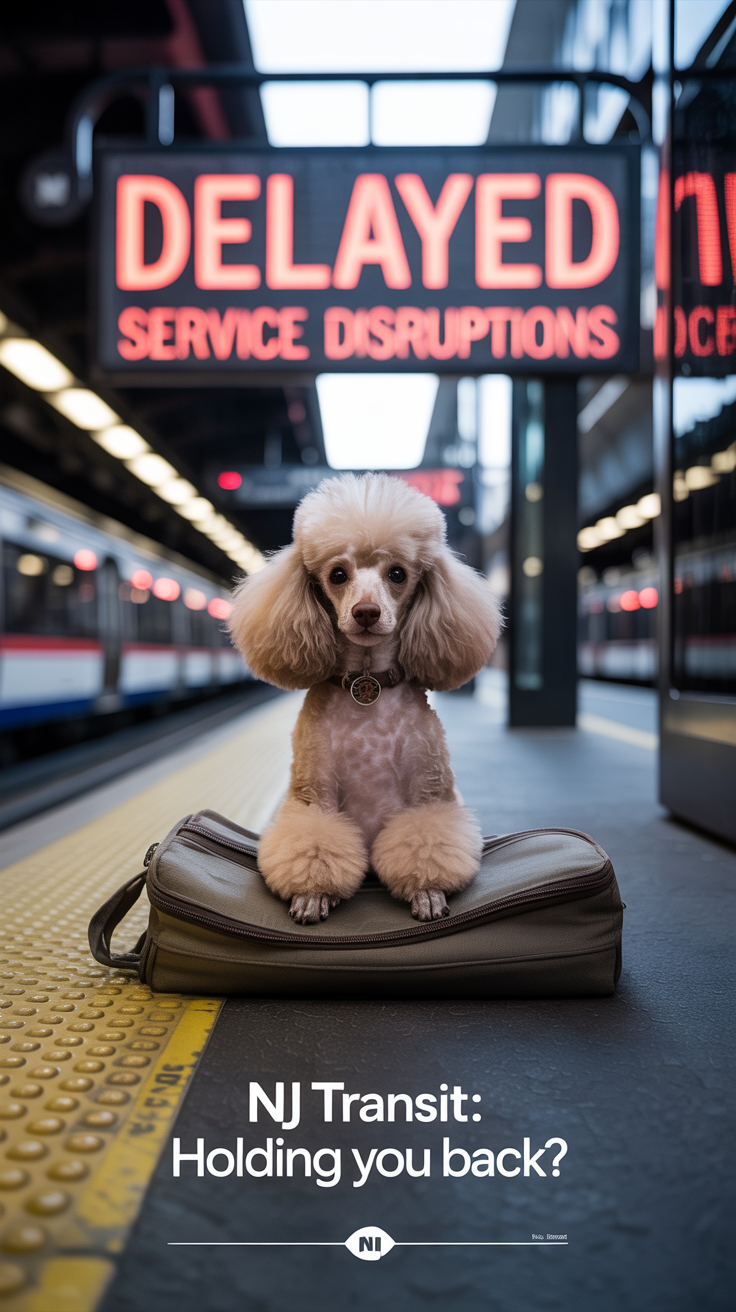“No Dice on the Rails”
Talks stall again as N.J. Transit and train engineers play hardball — commuters left holding the bag.
Now it happens that on a bright Saturday afternoon in the great state of New Jersey, where the trains sometimes run and sometimes do not, a gathering of high-level citizens takes place in the interest of putting an end to what you might call a most inconvenient situation — namely, a strike by the gents who drive said trains.
This strike is the first such occurrence in four decades, which is to say a long time between drinks, and it brings no small amount of grief to the average commuter who is just trying to get to work without having to take out a loan for a cab ride or learn to fly.
At approximately one o’clock post meridian, the top boss of New Jersey Transit, a citizen named Kris Kolluri known for his calm demeanor and sharply pressed trousers, enters into dialogue with the Brotherhood of Locomotive Engineers and Trainmen. This Brotherhood is a union, like a club, only with more rules and less dancing.
Now, these two sides sit in a room, perhaps with pitchers of cold water and sandwiches of a modest nature, and they chew over the matter at hand, which is the contract that is currently as empty as a racetrack on a rainy Tuesday. They chew it over for some hours, during which time voices are perhaps raised but not so much as to disturb the wallpaper.
After a while, they agree to call it a day and try again tomorrow, which is a Sunday and thus a holy day, except for those who find holiness in sleeping late. The National Mediation Board, which is a gang of federal peacemakers with very neat briefcases, is expected to attend that session, which means somebody in Washington is paying attention.
Mr. Kolluri, who is no stranger to the art of saying something while giving away nothing, issues a statement. He says the conversation is “constructive,” which is what you say when nobody throws a chair but also nobody signs on the dotted line. He assures the public that talks will resume and that all parties are hopeful, though the hope in question is the size of a paperclip.
Earlier that day, at the Broad Street station in Newark — a locale not known for its tranquility on a weekend — Mr. Kolluri tells the press that he is very much interested in getting the trains running again, and that this matter of pay is the sticking point. The engineers, it seems, would like to be paid in a fashion similar to their cousins over at Amtrak, Metro-North, and the Long Island Railroad, who are not shy about collecting a check.
However, Mr. Kolluri claims his agency is not a bottomless sack of gold, and that any arrangement too generous might leave the next governor of New Jersey with an ulcer and a budget held together by chewing gum.
Meanwhile, the union, represented by a spokesman with the weary air of a man who’s been to one too many meetings, expresses gladness to be back at the table, though nobody is bringing cake. They are hopeful that the Sunday session might produce results, though this hope is also of the delicate variety.
Now, it is worth noting that when the strike begins, it is precisely 12:01 a.m. on Friday, and the trains cease to move, which is not ideal for the many citizens who rely on them for such tasks as going to the office or escaping New Jersey.
There are buses, yes, but the buses are few, and the people are many. Though the agency says the first day of the strike goes off without too many citizens fainting from frustration, this is a matter of some debate among the public, especially those who arrive at work two hours late and look like they’ve been chased through a hedge.
As of now, the agency advises all who can stay home on Monday to do so, which is the kind of advice many people dream of receiving on any given workday, strike or no.
And so we wait, dear reader, to see whether the trains of New Jersey shall roll again under the guidance of well-compensated engineers, or whether the state shall descend further into the noble chaos of shared rides, long walks, and the ever-popular art of staying put.






